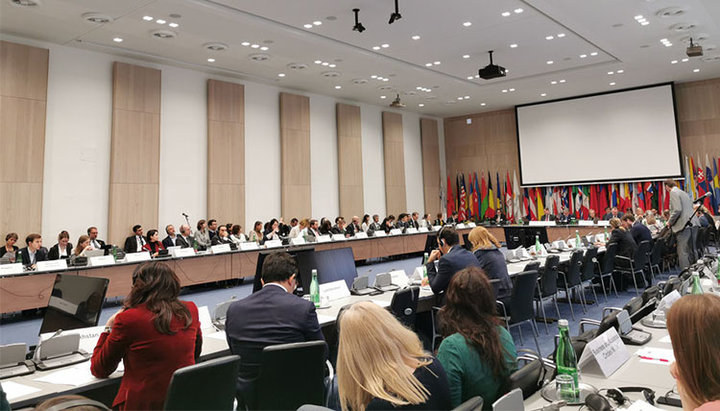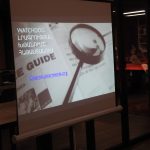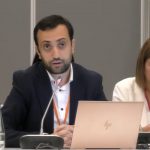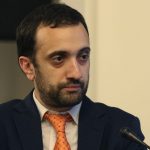- 25 November, 2019
- Announcements

The third Supplementary Human Dimension Meeting has provided a platform for an exchange of views among OSCE participating States, OSCE institutions and other executive structures and a variety of international organizations, civil society and other stakeholders on the implementation of commitments related to the freedom of peaceful assembly.
Following is the full speech of Programs Coordinator of the “Union of Informed Citizens” Daniel Ioannisyan:
The freedom of assembly is one of the main indicators of democracy, and the situation related to that fundamental right and the respective legislation in Russia, Central Asian countries, Azerbaijan and even in Georgia (which is known as democratic state) has been getting worse during the recent years.
As you probably know, we had major protests in Armenia in April-May 2018. According to independent surveys, more than 1 million people or 40 percent of the population participated in those protests, and it was a major achievement that no one was killed or even seriously injured.
And this achievement was a result of the very efficient and long-term efforts of the international community (the EU and the OSCE in the first place) and local democracy supporters. It goes without saying that every member state is unique and one cannot just simply duplicate the activities from one country to another. But there are many tools that could be used by the international community to protect or enhance the freedom of peaceful assembly in many countries.
International support for the effective exercise of the right to peaceful assembly should consist of the following activities:
- Supporting public awareness-raising: Citizens need to know their rights and responsibilities during assemblies, and that they have significantly more rights when their assembly is peaceful.
- The capacity of potential organizers of assemblies can be enhanced, in particular, the capacity to keep the assembly peaceful and to cooperate with the media and the police.
- In countries where the government has a genuine will to respect the right to peaceful assembly, the capacities of the police should be enhanced and the removal of non-peaceful participants from rallies should be addressed.
- Assistance can be provided to the media covering the assemblies. Dissemination of objective information about the rally is very important, but it is no less important to document illegal actions against protesters. Presence of journalists can prevent a number of undesirable scenarios.
- It is important to support teams involved in the protection of the rights of victims of unlawful actions against peaceful protesters. Those are chiefly lawyers and human rights organizations.
These actions must, of course, stem from the particular situation, the environment and the democratic traditions in the given country.
At the same time, the legislation of the member states should be improved (if necessary, with international pressure or support) and the following should be specified:
- Authorization for holding peaceful assemblies should not be required. The organizers should only notify the authorities.
- No force should be used against participants of peaceful assemblies when the rights of others are not disproportionately limited, and whatever happens, no special means or riot weapons can be used against peaceful protesters.
- If the assembly was peaceful, the participants and organizers should not be detained or substantially fined just because the protest was not authorized.




